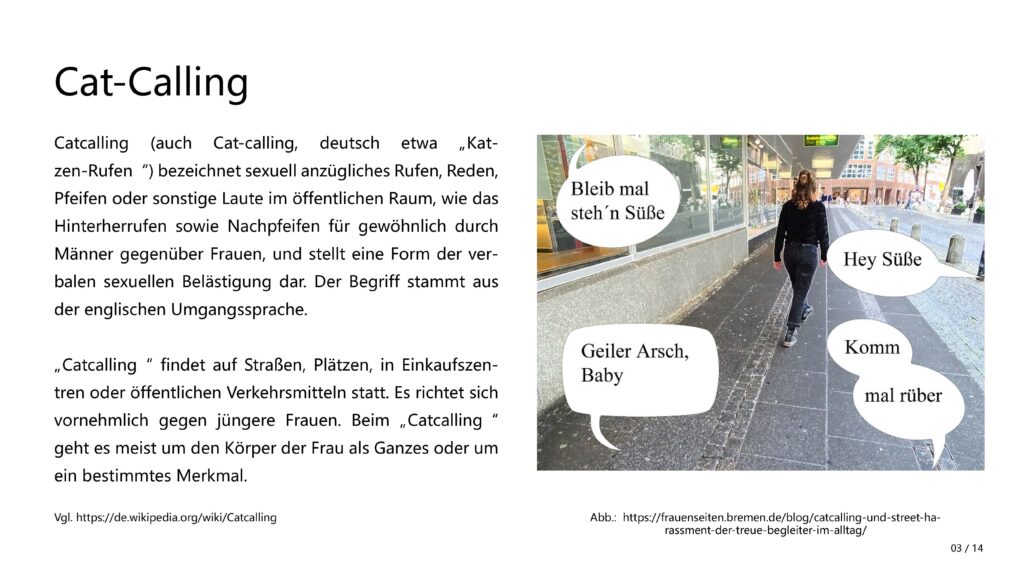In beginning to explore Sara Ahmed’s book, »Complaint!« I decided to take a practical attempt: I interviewed two friends about their experiences with complaints and the feelings and thoughts associated with them. Although I did not know how the conversation would turn out, as I intentionally left the questions open, I saw it as an interesting approach to use the “feminist ear” as a research method, as Ahmed did in the development process of »Complaint!« (cf. Ahmed 2021: 8). The following conversation took place in a cozy surrounding on a sunny afternoon between three friends.
J: Did you ever complain about something?
T: Yeah. In private life or to some organization or agency?
J: Everything is included in this question – whatever you complained about. What did you do? Why did you complain? And where did you complain?
T: I regularly complain about stuff that I don’t like. But before I complain, I do a long analysis in my head. Why does it bother me? Does it bother only me or bother other people as well? And then when I come to the conclusion that it’s generally not accepted – such a behavior is not accepted – I’m saying it to the person. But not directly, I start giving hints: “Maybe there, if we do this way, this way or another way…” I’m complaining not directly but indirectly.
J: In such situations, what were you complaining about, for example?
T: Recently, I’ve been complaining about, for example, where we put the shopping bags, if we do the dishes right after we cooked, or if we tidy up the bed after we wake up, or if the table is full of stuff like I complain that it’s not how it’s supposed to be. There is no structure and no organization.
J: Besides your personal life, have you ever complained to an organization?
T: Recently, I didn’t complain about an organization related topic I think – at least in the last few months.
J: Okay. And before?
T: And before….I need one minute to think about it.
J: Yes, no worries.
T: I am gonna check my emails – maybe.
J: So R, in the meantime, maybe you could tell me a little bit about your complaint history.
R: Actually, when T was giving her answers I was thinking like, I seem to complain a lot about things. But that’s because I’m really opinionated. I would say, not so much in my private life, but a few examples came to my mind. I think when I was 15, or 16, or something, I complained to a
radio station because they were always playing the song, “Can you blow my whistle, baby?”. It was the first time I understood the lyrics, and I was like: “Why do you play this all the time? Little kids are listening to this!” And now I’m like: “Yeah, but there is also sexual freedom.” Recently I complained to my employer about gendering in German. I read an article that you should do it with a star and not with a colon, because that’s easier to read for people who use text to speech programs, as it’s easier to process for such programs. So blind people can better understand gendered language, if it’s written in a certain way. And so I asked: “Where can I complain about this to our company, so we can change it in the policy of our community and outside communication?” And then, like in my private life, I like to complain as like “pretend complaining”. If I feel a certain way, it’s good to just complain about stuff a little bit. Let a little bit of grumpiness out. And just be like: “I hate that I have to go there”. Even if you like to go there – maybe you made an appointment with a friend or something – and then you’re like: “Why do I have to go? I don’t even want to go anymore.” You’ve complained and after you’ve complained you’re like: “Okay, now I can go, because now it’s fine somehow.”
J: So, to some extent complaining has the function to just get pressure out of your system in this case?
R: Yes.
J: Okay. Let’s take a step back to the case you mentioned before, the complaint about the gendering at your workplace. What was the reaction to your complaint?
R: At first it was kind of a question actually that I asked in our pride network. I got a lot of answers in the intranet that were positive and reactions like “Yeah, let’s do that, it’s good”. And I had also asked for official marketing contacts from the headquarter – so people gave me names. But after that, after I came out of that bubble of people who understood and went into the corporate organisation, the reactions were more like: “Oh, you have to talk to this person, because we’re not responsible for that”. And it was kind of like, getting pushed to the next person and to the next person, because everybody said they’re not responsible and that their department is not where the decision is made. So it hasn’t really ended anywhere. I haven’t really found the person to talk to. It seems like they try to avoid it or try to avoid make a definite decision.
J: How does this make you feel?
R: Cynical, I guess, because it’s kind of what I thought would happen, but I thought I’m just gonna do it anyway. Because? Yeah, I don’t know. I already thought it wasn’t gonna go far, but I also thought, if nobody says anything, they won’t know that people are looking out for that or that this subject is important.
J: Okay, I think I understand.
J: T, did you find something in your email account?
T: No, I didn’t find anything and I tried to remember the last year. But it seems like I didn’t complain to any organizations or something. Unfortunately – maybe.
R: I know that you did complain to an organisation. You complained to your internet provider, because it didn’t work or something? Or didn’t you?
T: Oh, yeah. Yes, it was V. The internet didn’t work and then I had to call them. I explained that we had no internet the last two weeks. Sometimes we had internet, sometimes we didn’t have internet for many hours, and it cannot work this way. And then they said: “Yes, but we cannot do anything.” And then I asked: “Okay, then can you please give me free data, like 50 gigabytes of data, so that I can work”. And then the person said: “No, I cannot do it. It’s not working this way.” And I said: “Yes, but I have a contract with you and now it’s not working. Please let me talk to your boss.” And the person said: “No, I cannot do it. I’m so sorry.” And then at some point, I got mad. And I just said: “Okay, thank you”, and then I hung up, because it didn’t lead anywhere. And I just felt mad.
J: In the end, you didn’t have a solution for your problem?
T: Yeah, I didn’t have a solution. But luckily, it just worked the next day – somehow. J: In general, what does complaining mean to you?
T: Lately it is like, to take out your uncomfortable feeling from the inside out, and then just let the spirit feel free. Yes. And also sometimes, complaining doesn’t have any meaning to me, if after I let it out, I don’t feel better. I know I will feel better, if there will be people who listen to me and then develop a solution, or help me to find a solution by myself. Then, it’s a useful complaint. Yes – there are two types of complaint: Useful complaint and useless complaint. Useless complaining is just letting your complaint out loud and you just bother the people in front of you. You are not helping them and you’re not helping yourself as well.
J: And what about you, R?
R: I think it also depends on the type of complaint I’m doing. If I’m doing it playfully, or like to let off steam, it can sometimes mean kind of a connection. I have a work best friend and we like to complain about work. We send memes back and forth like “Work sucks” and “I’m so tired”. And like, you know, the Friday memes and the Monday memes and the Wednesday memes. So complaining can also be like a friendship activity, I guess. If a group of people complain about the same things, it’s also kind of unifying sometimes. That can be in a fun way unifying or also in a serious way unifying. Because activism is kind of complaining about something, but with more people and like a demonstration is also complaining, I guess. For me that means community sometimes, but it also means vulnerability. Because if you complain about something that is important to you, and you complain about it, then you’re giving away something of yourself, and you kind of give it to other people, you’re being vulnerable. And then there’s always the risk that by complaining, you kind of make it worse for yourself or that they know that that’s a sore point for you and you kind of have to trust someone to be good with that, to treat it well, and to not use it for something.
J: As a last question: How does talking about complaints make you feel? How is it to talk about your history of complaints and about complaining in general?
R: I feel good about it. But if I think about activism, right now, for me, it’s exhausting to complain, sometimes. Because it’s always like a fight. You have to put some resources into it to have a stance on something and then defend that. If you complain, then you have to sit behind the complaint and defend it against other arguments, for example. Although, talking about what I’ve done in the past, I feel good, because I feel like it’s always kind of an expression of your
boundaries, and it feels good to set them. Even if they are not always respected, at least you did something for yourself. So that’s good.
T: I personally don’t like the feeling of complaining: I mean, when I complain, I don’t like how I feel. But then I feel good when I talk about the times when I was complaining, because obviously it brought me some improvements and results. So talking about the times when I complained is good, but I don’t like the process of complaining itself. I try not to do it so much. But I also realized that sometimes it helps. So I’m just having my inner fights all the time, but it’s fine. That’s me.
J: Thank you so much for sharing your thoughts and stories with me.
Reflecting on my friends’ thoughts, I realized that complaining as a practice is intuitively not always related to problems and discrimination within organizations or structures of power. As R explained, complaining as a communication tool can be playful and helps to investigate personal boundaries and let off steam.
The picture of letting off steam reminds me of Ahmeds’ illustration of the “liquid that spills out from a container” (Ahmed 2021: 18), which is a much more intense and painful description. For me this shows how making a complaint that is personally important to the complainant is connected to vulnerability and making something extremely personal visible in an unprotected space.
I was saddened when T and R explained that before they filed a complaint with an institution and thus left the protected space, they already assumed that their complaint would not lead anywhere or bring systemic change. Both have experienced not being heard or even being put off and sent from one person to another.
As Ahmed states “hearing complaints can also be how you learn how complaints are not heard” (Ahmed 2021: 6). That was perhaps the most present thought in my mind, after the conversation. Using a “feminist ear” made me realize how people in my nearest surrounding are being put off and not heard when complaining about personally important problems and discrimination.
Questions that stick in my head are: What are people’s motives for ignoring complainants’ voices? And how are those related to or built upon institutional mechanisms? Was, for example, T turned down for policy reasons by her internet provider? And why did nobody from the corporate team help R with her attempt to advocate for greater accessibility?
References:
Ahmed, Sara. Complaint!, New York, USA: Duke University Press, 2021.



























